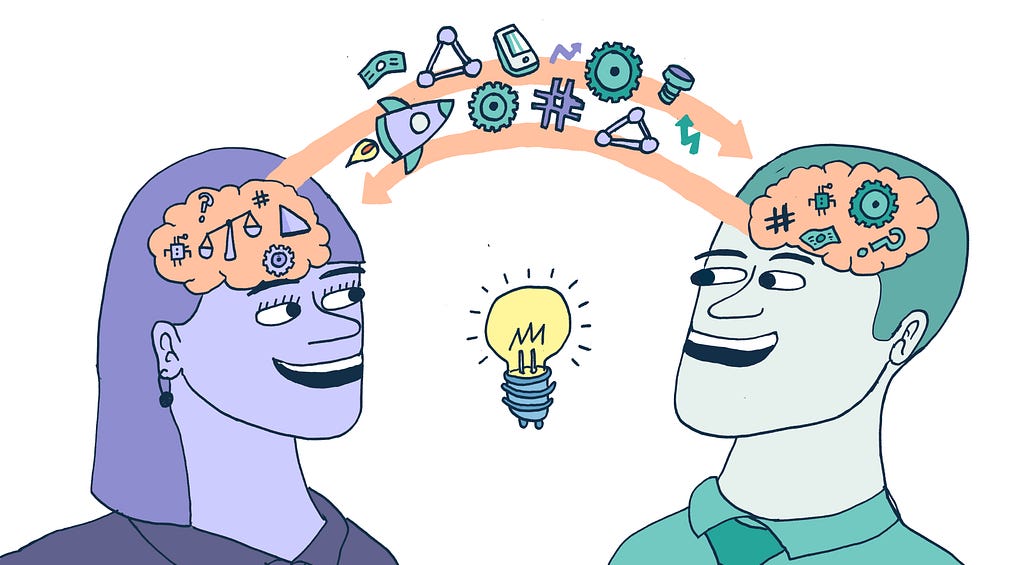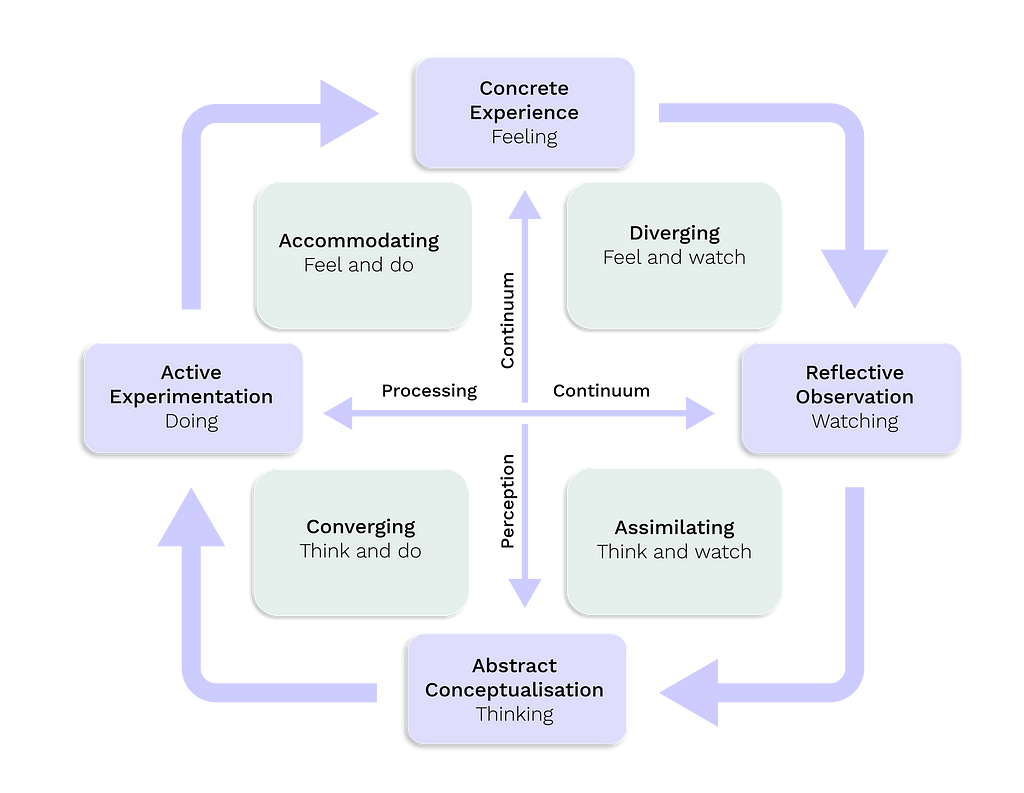Knowledge ≠ understanding – how to be a responsible leader in a digital world
Knowledge ≠ understanding
How to be a responsible leader in a digital world

Responsible leaders today must be able to understand how technology affects every aspect of their organisation: from strategy through to delivery, from communications through to HR, finance and operations.
At Doteveryone, we’ve developed a digital understanding model that defines what people need to comprehend so they can usefully harness technologies in different aspects of their lives. Leaders have a particular responsibility to build their digital understanding as their decisions will affect how technologies impact people in their organisations and in society as a whole.
Over the past two years, Doteveryone has been working with leaders to support them on that journey — to help build their competence and confidence so they are able to be responsible leaders in a digital world.
The programme aims to empower them to capture the opportunities technology offers to deliver business objectives better, as well as to evaluate the potentially unforeseen consequences of technology and data.
After running programmes with ACAS and London City Hall, this week we start work with our third group of leaders and will be working with more of the City Hall senior team.
Our digital leadership programme has no predefined syllabus — participants focus on the things that are important and relevant for them, their teams and their organisation so the content for each cohort will look different. But over time we’ve uncovered three core principles underpinning what makes it successful:
1) It’s better to learn to ask good questions than give good answers
Most learning programmes teach participants how to respond to problems with better answers. We encourage the participants to ask better questions. Because technology and data can only support better business solutions if you are asking the right questions.
Traditionally leaders are expected to have answers based on their years of experience and acquired knowledge.
But knowledge is not the same as understanding. Having the answers does not necessarily mean you are asking the right questions.
We believe digital transformation is not only about what organisations are doing but about how people within the organisation are making decisions.
We may know how to perform a task digitally — but do we necessarily know the reason we are performing it and its potential consequences? Are we aware of the wider context of and around our actions? Are we considering others’ contributions?
The digital leadership programme is about supporting people to be the leaders who ask the best questions and who support their teams to develop a questioning mindset, with permission to think critically.
2) Coping not coding
Humans fear change and uncertainty. We seek predictability, it’s part of our survival instinct. Uncertainty triggers a ‘threat response’ in the brain which puts us in a place where it becomes difficult to think rationally, creatively, or be open-minded — the things we need even more at times of change.
And technology is subjecting us all to the continual experience of accelerated change.
With this in mind, many leaders will want or expect a digital leadership programme to deliver reassurance and certainty by plugging gaps in knowledge.
But during turbulent times and when navigating a constantly changing landscape, it’s more important to build the resilience to cope with the ways in which technologies are shaping and changing our lives.
It is ultimately about giving leaders tools and models that help them become comfortable to lead responsibly in a fluid world and to develop a mindset of continuous learning.
It’s about coping not coding.
3) Work better together by working with autonomy
Finally, our action learning approach is rooted in the belief that in a healthy, resilient and growth-minded culture, people become more collaborative as they become more autonomous.
We often think of autonomy and collaboration as sitting at opposite ends of a spectrum — that with more of the one comes less of the other. My personal observation is, however, that collaboration without autonomy often creates work cultures where nobody leads or assumes personal accountability. Conversely, autonomy without collaboration is stripped of the power of relationship and the access to the collective.
The programme provides a collaborative space where all the participants have real control over all the decisions about the programme in order to build their own digital understanding for themselves. The concept of ‘continuous contracting’ is core — we create contracts with each other on how to run the sessions and how to behave with each other.
The one-to-one mentoring scheme running alongside the group sessions allows for personal conversations which help to build trust in one’s own thinking, as well as in other leaders’ thinking.
How the digital leadership programme works
These three principles led us to design the programme using Kolb’s experimental learning cycle. Kolb sees learning that delivers true understanding and application, as a four-stage cyclical process.

The programme consists of:
1) 10 bi-monthly group sessions
Attendees meet regularly as a group over five months in inclusive self-directed learning sets. Throughout the programme, the group creates and protects a learning environment that allows for diverse mindsets and diverse experiences. Guest speakers will deliver benevolent provocations throughout the programme, sparking discussions and initiate change of view. The group creates its own curriculum, supported by a facilitator.
2) 10 one-to-one mentor sessions
Prior to the start of the programme we use an online questionnaire and a personal follow-up conversation to help match each participant with a dedicated external mentor. Mentor meetings happen outside the group sessions and focus on the individual needs of the attendees throughout the duration of programme.
3) One personal project
Each leader will start the programme with a specific project in mind. They will then be able to apply their learning and critical thinking to live work. The project also supports participants to have real and relevant conversations with their mentors.
Participants on our previous two programmes have been able to create real and immediate change through individual project work, from redefining the role of a digital board to redesigning work plan templates to support project teams to focus on asking better questions and scrutinise the challenge before moving into solution thinking.

The programme with Cityhall will run from November 2018 through to April 2019. Over the next few months we will be sharing our learnings, insights, and feedback here.
If you’re running similar programmes or would like to find out more, we’d love to chat. Get in touch at [email protected].
Knowledge ≠ understanding — how to be a responsible leader in a digital world was originally published in Doteveryone on Medium, where people are continuing the conversation by highlighting and responding to this story.